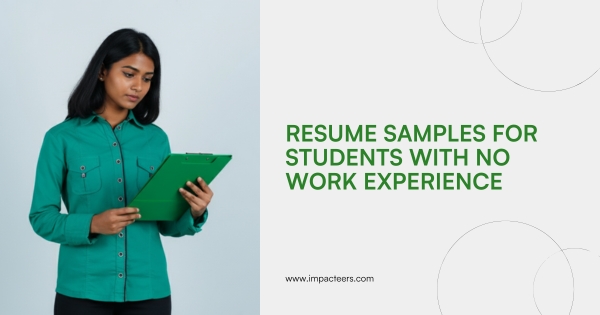Discover the 10 most common mistakes to avoid during placement interviews. Learn how to build a strong resume, prepare smartly, and succeed in campus placements with Impacteers.

Placement season is a defining moment for every college student, especially those in engineering or professional programs. After years of lectures, projects, and late-night exam preparation, the interview room is where your real journey begins.
Whether you’re facing your first campus placement or applying off-campus through referrals, the pressure to perform well in placement interviews is intense. And while technical knowledge matters, it’s often the non-technical mistakes that cost students their dream jobs.
To Explore more>>https://blog.impacteers.com/
In this blog, we’ll uncover the 10 most common mistakes students make during placement interviews, based on real experiences from placement officers, recruiters, and hiring experts. We’ll also offer practical tips to avoid them—and explain how Impacteers Courses can help you become interview-ready from day one.
What Are Placement Interviews and Why They Matter
Most candidates spend weeks preparing for aptitude papers, coding rounds, and technical questions. But few realize that interview success depends equally on:
How to Prepare for Placement Interviews Effectively
- First impressions
- Communication skills
- Confidence under pressure
- Clarity of thought
A single slip-up—like giving a wrong resume detail or fumbling through “Tell me about yourself”—can undo months of preparation.
Let’s ensure that doesn’t happen to you.
Mistake #1: Not Researching the Company Before Placement Interviews
Many students walk into interviews without even knowing what the company does. This is a red flag for recruiters.
Why It’s a Problem:
- Shows lack of interest and preparation
- You won’t be able to align your answers with the company’s goals
What to Do Instead:
- Spend 15–30 minutes reading the company website
- Note down core services, latest projects, and client base
- Check for any recent news or achievements
Pro Tip: For consulting and service companies, understand the types of clients they work with and the industries they serve.
Mistake #2:Giving Overly Long or Irrelevant Answers in Placement Interviews
“Hi, I’m Rakesh. I’m from XYZ College. I like cricket.”
That’s a missed opportunity. Your self-introduction sets the tone.
Why It’s a Problem:
- Lacks structure and depth
- Doesn’t highlight your value as a candidate
What to Do Instead:
- Use a Past-Present-Future format:
“I’m a final-year student in Computer Science at ABC Institute. I’ve built two web applications during college and recently interned with a fintech startup. I’m now looking to apply my skills in a growth-focused organization like yours.”
Mistake #3: Overloading Your Resume with Buzzwords
Your resume is the first filter. Packing it with words like “synergy,” “thought leader,” or fake certifications can hurt you.

Why It’s a Problem:
- Recruiters spot fake or exaggerated skills easily
- You may be asked to explain things you don’t know
What to Do Instead:
- Be honest
- Include only verified skills and projects
- Mention real achievements with numbers or outcomes
Use tools like the Impacteers Resume Builder to build clean, ATS-friendly resumes that reflect your actual strengths.
Mistake #4: Not Practicing Mock Interviews
Practicing aptitude papers is great, but interviews are a different game.
Why It’s a Problem:
- You may panic when asked unexpected questions
- Nervousness affects delivery even if your answer is correct
What to Do Instead:
- Practice with friends or mentors
- Record yourself answering key questions
- Enroll in mock interview sessions on Impacteers
Even 2–3 mocks can drastically improve your confidence and clarity.
Mistake #5: Giving One-Word or Over-Verbose Answers
Some students give yes/no answers. Others go on for 5 minutes on one question.
Why It’s a Problem:
- Makes the interview feel unnatural
- You may come off as either unprepared or trying too hard
What to Do Instead:
- Keep answers 1–2 minutes long
- Structure them logically (e.g., STAR method for experiences)
- Practice summarizing your thoughts
Mistake #6: Ignoring Soft Skills Questions
Tech students often skip preparing for HR or behavioral questions like:
- “Tell me about a challenge you faced”
- “How do you handle feedback?”
Why It’s a Problem:
- These questions show your personality and work ethic
- Recruiters want team players, not just coders
What to Do Instead:
- Prepare real examples from your college life
- Focus on leadership, conflict resolution, or time management
Tip: Impacteers offers modules on communication and HR questions in their interview prep courses.
Mistake #7: Being Overconfident or Arrogant
Confidence is great. Arrogance is not.
Why It’s a Problem:
- Recruiters want humble, coachable candidates
- Overconfidence can come off as disrespect
What to Do Instead:
- Admit when you don’t know something
- Thank the interviewer for feedback
- Keep a calm, polite tone—even when challenged
Mistake #8: Dressing Inappropriately for Placement Interviews
It’s a formal event, even if it’s held on campus.
Why It’s a Problem:
- Shows poor judgment
- Affects first impressions
What to Do Instead:
- Stick to formal shirts, trousers, and neat shoes
- Keep accessories minimal
- Maintain grooming (hair, nails, posture)
Mistake #9: Not Asking the Interviewer Any Questions
When they say, “Do you have any questions?”—don’t say no.
Why It’s a Problem:
- Shows lack of curiosity or engagement
What to Do Instead:
Ask smart questions like:
- “How is a fresher typically onboarded in your company?”
- “What are the current challenges your team is working on?”
- “What kind of projects do new joinees get in the first year?”
Mistake #10: Failing to Review Past Interview Feedback
If you don’t learn from one interview, you’ll repeat mistakes in the next.
Why It’s a Problem:
- Leads to stagnation
- You won’t improve unless you know where you went wrong
What to Do Instead:
- Write a post-interview reflection (questions asked, what went well)
- Review your resume and answers
- Get mentor feedback—Impacteers’ mentorship sessions are perfect for this
How Impacteers Courses Help You Avoid These Mistakes
Impacteers is a learning and career platform built for students and freshers across India, especially in engineering, management, and service sectors.
Why Students Trust Impacteers:
- Personalized interview preparation courses
- Resume and cover letter building tools
- Soft skills and mock interview training
- Domain-specific guidance (consulting, core jobs, IT services)
If your institute doesn’t yet have Impacteers integrated, you can sign up individually for free and access modules that cover everything from resume building to real-life interview simulations.
Conclusion
Avoiding mistakes in placement interviews is just as crucial as preparing for them. It’s not about being perfect—it’s about being prepared, professional, and aware.
From resume blunders to poor communication, every small misstep can cost you a big opportunity. But with the right support system—such as Impacteers’ tailored courses and mentorship—you can walk into every interview room with confidence, clarity, and poise.
Remember: Your first job is the launchpad to your career. Make it count.
FAQs
Q1. I’m from a non-English background. Can I still crack interviews?
Yes! Focus on clear communication. Many companies value clarity and honesty over fancy vocabulary. Impacteers offers English for Interviews modules too.
Q2. How important is body language in placement interviews?
Very. Good posture, eye contact, and hand gestures reflect confidence. Practice in front of a mirror or in mock sessions.
Q3. Is it okay to carry certificates and resume printouts?
Yes. Carry 2–3 copies of your resume and any relevant certificates in a neat folder.
Q4. What should I do if I don’t know the answer to a technical question?
Be honest. Say, “I’m not sure about this, but I’d love to read more about it.” Never fake it.
Q5. How soon should I start preparing for placement season?
Start at least 3–6 months before campus placements. Build your resume, join interview courses, and begin solving aptitude and paper-based tests early.



Post Comment